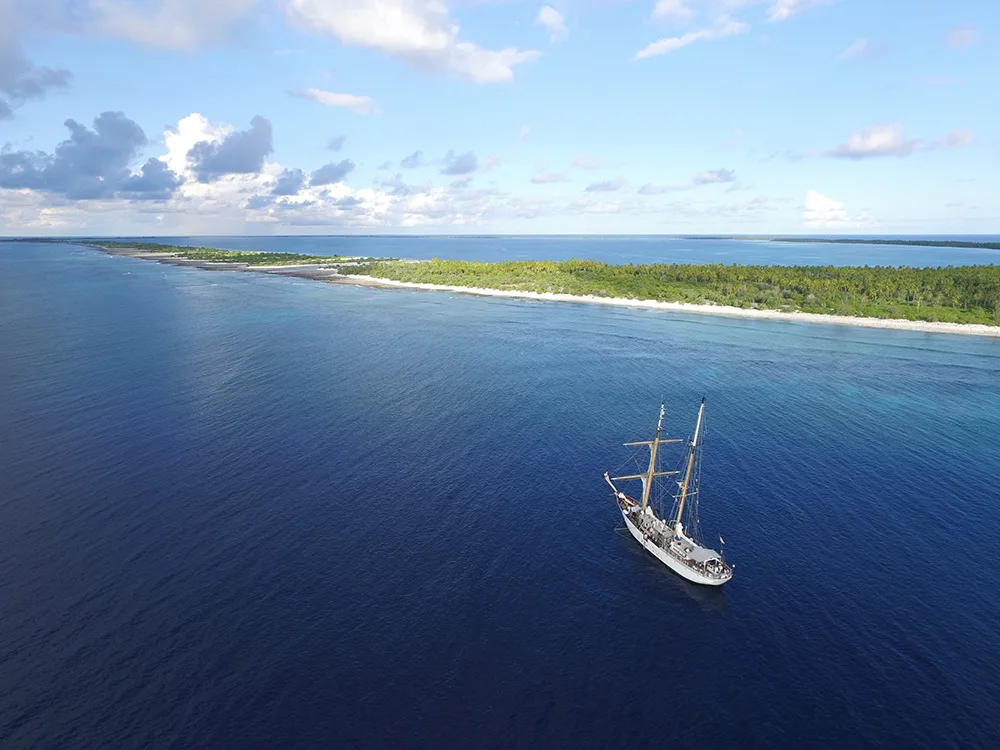News
Sea Education Association Plans Return to Phoenix Islands

This summer, students and scientists from Sea Education Association (SEA), an ocean-focused study abroad organization based in Woods Hole, Massachusetts, will return to the Phoenix Islands, a remote, ecologically significant and highly biodiverse Pacific archipelago in the Republic of Kiritbati. It will be the first such expedition since 2019.
The voyage is part of the SEA’s Protecting the Phoenix Islands program, which was launched in 2012 following the establishment of the Phoenix Islands Protected Area in 2006.
Described as the last coral wilderness on Earth, the Phoenix Islands Protected Area is one of the world’s largest coral archipelagos, home to 14 known underwater sea mounts, about 500 species of fish and 200 species of coral. It was named a UNESCO World Heritage site in 2010. With over 400,000 square kilometers, it’s the largest marine protected area (MPA) in the world.
Students will make a 3,000 mile ocean passage aboard the SSV Robert C. Seamans, a 134-foot tall ship ocean research vessel, from Honolulu to the Phoenix Islands, and then to Fiji. Port stops to be scheduled may include Howland and Baker Atolls, Nikumaroro, Orona and Kanton Islands, among others.
While in the Phoenix Islands, the students, who come from universities around the country, will conduct research that adds to a longitudinal database assessing the health of the reef ecosystem. Their research will focus on the effects of climate change, ocean acidification, pollution, over-fishing, and other factors. The students will evaluate marine policy research and implementation, and gain experience communicating and networking in professional management and conservation settings. They will gain a deeper understanding of the complex relationships between science, economics, technology, and sustainability.
Students will also explore the reef, lagoon and terrestrial environments of a variety of Pacific atolls. Other possible activities include deploying drifting oceanographic research buoys and conducting biomonitoring of larval tuna.
Prior to the Covid pandemic, which limited international travel, SEA scientists and students made the trip every summer. On an expedition in 2016, SEA students and scientists were excited to discover that previously bleached coral reefs in the protected area had rebounded. The encouraging discovery allowed researchers to better understand how conservation efforts can reverse the impacts of ocean acidification, pollution, and over-fishing on coral ecosystems.
The program begins on June 5th at SEA’s Woods Hole campus. The sea component begins on June 26th and ends August 8th. Applications are currently being accepted.
Contact: Douglas Karlson, Director of Communications | 508-444-1918 | dkarlson@sea.edu | www.sea.edu